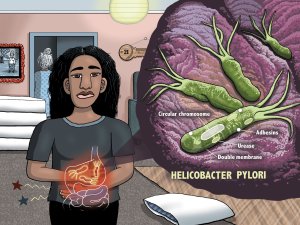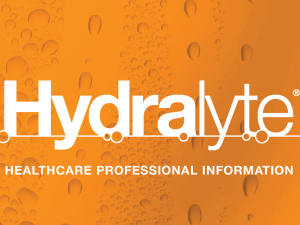Academic pharmacist Nataly Martini provides key information on Helicobacter pylori pathophysiology, diagnosis and evidence-based treatment strategies to enhance patient outcomes
Monday memo: Mixed results for Pharmacy First in UK, Sector agrees on ADHD
Monday memo: Mixed results for Pharmacy First in UK, Sector agrees on ADHD

Catching up on the weekend
The NHS has implemented its Pharmacy First scheme, designed to ease the workload burden on GPs by allowing them to refer those with minor ailments to a pharmacy instead.
The scheme has seen a 60 per cent consultation increase among Scottish pharmacies, with Royal Pharmaceutical Society director Laura Wilson describing the Pharmacy First and Pharmacy First Plus schemes as “hugely welcome additions for both pharmacy teams and patients” since it began in July 2020.
However, GPs in England have been accused of refusing to take part. Of the 470 community pharmacies recently surveyed by the National Pharmacy Association, three quarters were not getting regular referrals from GPs. Some said they were getting none.
The situation is such a concern that the NPA has asked the health secretary to convene an urgent summit to address it. NPA chair Nick Kaye says the lack of referrals from GPs could threaten the success of the new NHS scheme.
READ MORE
Number of Pharmacy First consultations in Scotland increases by 60% in three years – from Saša Janković at the Pharmaceutical Journal
Pharmacists accuse GPs in England of scuppering Pharmacy First scheme – from Denis Campbell, health policy editor at The Guardian
After five years and 312 meetings, the specialist colleges, the health sector and the Government have all agreed that changes need to be made in the way ADHD is managed, with ADHD NZ chair Darrin Bull telling 1News he “never thought [he’d] see the day”.
All parties have agreed the current special authority renewal process, which happens every two years and involves an expensive psychiatrist appointment and wait times that can exceed the patient’s current supply of medication, should be removed.
Auckland specialist GP Tony Hanne has faced significant penalties for ignoring the current rules to ensure his patients continue to have access to their medication. However, Dr Hanne could be able to help if a rule change allows GPs to receive training in managing ADHD as a chronic condition.
READ MORE
Rule-breaking GP may yet see ADHD treatment changes he fought for – from Gill Higgins, Fair Go reporter at 1News
The University of Waikato plans to provide a graduate-entry midwifery programme to respond to the sector’s significant workforce shortages. The programme, announced on 5 May, the International Day of the Midwife, is expected to start in 2025, initially taking on 20 students.
The course will be the first of its kind in Aotearoa. but Te Huataki Wairoa School of Health dean Jo Lane says the graduate-entry Master’s degree education model is becoming increasingly common.
READ MORE
University develops new programme to become a midwife – from the University of Waikato in Undoctored
Māori unemployment has grown to 8.2 per cent according to Statistics New Zealand, the highest it has been in four years and four times higher than the national rate, which reached 4.3 per cent in the quarter ending March 2024. Rates for Pacific peoples have increased to 7.4 per cent.
In a media release, Te Pāti Māori employment spokesperson Takutai Tarsh Kemp describes the new statistics as “an absolute embarrassment” for the current government, especially as unemployed Māori will be relying on financial assistance, such as benefits, that has been affected by cost-cutting.
READ MORE
Māori unemployment rate increases by more than four-times national rates – from Te Pāti Māori in Undoctored
Grace Tinetali-Fiavaai, a reporter at the New Zealand Herald, shares her personal journey of getting an endometriosis diagnosis and her recent experience with surgical treatment for the condition.
Ms Tinetali-Fiavaai describes endometriosis as a “hidden epidemic” and emphasises the importance of speaking up about health challenges, especially for Pacific women, saying she chose to go through with treatment for her children.
READ MORE
Breaking the silence on endometriosis and why Pacific women must prioritise their health – from Grace Tinetali-Fiavaai at NZ Herald




